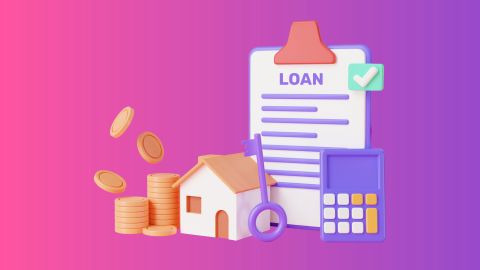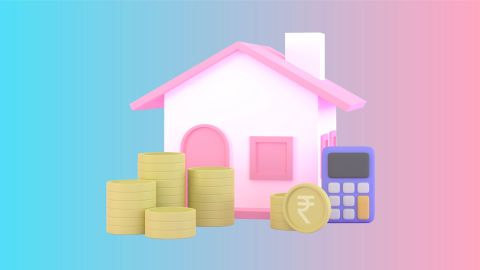External Development Charges (EDC) in real estate represent a critical aspect of property development and urban planning. EDC is a term that encapsulates the financial obligations imposed on developers by local authorities for the enhancement of external infrastructure surrounding their projects.
Understanding External Development Charges (EDC) is indeed crucial in the realm of real estate, as it directly influences various facets of property development and urban planning. One significant area where the impact of EDC is felt is in the financing of properties, particularly when it comes to obtaining home loans.
When developers are required to pay EDC to local authorities for the improvement of external infrastructure, such as roads, drainage systems, or parks, these charges are often factored into the overall cost of the project. Consequently, developers may seek to recoup these expenses by adjusting the prices of the properties they offer for sale.
What is EDC in real estate: Full form, role, and importance
External Development Charges (EDC) refer to the fees levied by governmental authorities on real estate developers for the development of external infrastructure surrounding their projects. These charges are intended to cover the costs incurred in providing amenities such as roads, water supply, sewerage, and other civic facilities to support the increased population resulting from the development of the project.
The role of EDC is pivotal in ensuring that the infrastructure of a locality is adequately developed to accommodate the influx of residents due to new real estate projects. Developers are obligated to pay these charges to the concerned authorities as part of their project development expenses.
The role of EDC in real estate transactions
EDC plays a significant role in real estate transactions, particularly in the development phase of projects. Developers factor in these charges while planning their budgets and estimating project costs. Failure to comply with EDC requirements can lead to delays in project approvals or even legal repercussions, making it imperative for developers to adhere to the regulations governing these charges.
Moreover, EDC also serves as a source of revenue for local authorities, enabling them to invest in the development of essential infrastructure for the benefit of residents in newly developed areas.
Why is EDC important for homebuyers?
For individuals seeking to purchase a property and finance it through a home loan, the inclusion of EDC in the project costs can have implications on several fronts:
- Loan amount: EDC can contribute to an increase in the overall cost of the property. As a result, prospective buyers may need to apply for a higher loan amount to cover not only the base cost of the property but also the additional expenses associated with EDC.
- Down payment: With the total cost of the property potentially higher due to EDC, buyers may need to make a larger down payment to meet the lender's requirements. This can affect the initial financial burden on the buyer and their ability to secure financing.
- Interest payments: A higher loan amount means larger monthly repayments and potentially more interest paid over the life of the loan. Buyers should carefully consider how EDC-influenced costs will impact their long-term financial commitments.
- Property valuation: EDC can indirectly influence property valuation, as it affects the perceived value of the property in the market. Appraisers may take into account the impact of EDC on the property's desirability and pricing when determining its market value.
How to pay EDC?
The payment of EDC is typically facilitated through the local development authorities or municipal corporations responsible for overseeing real estate developments. Developers are required to submit the necessary documentation and pay the prescribed charges as per the established norms and timelines.
Payment methods may vary depending on the jurisdiction and the policies of the concerned authorities. Developers may have the option to pay EDC in instalments or lump sum amounts, subject to the regulations governing such payments.
Impact of EDC on property prices
The imposition of EDC can have a significant impact on property prices in a given area. Developers often incorporate these charges into the cost of the housing units, resulting in higher prices for buyers. Additionally, delays or disputes related to EDC payments can further escalate project costs, leading to an increase in property prices to cover these additional expenses.
Furthermore, the development of infrastructure funded by EDC can enhance the value of properties in the vicinity, thereby influencing property prices positively over the long term.
Explore Bajaj Housing Finance Home Loan
Now that you're well-versed in the intricacies of External Development Charges (EDC) and their impact on real estate transactions, the next crucial step is to seamlessly navigate the process of obtaining a home loan. With low interest rates, long repayment tenure, and quick disbursal, Bajaj Housing Finance ensures that your journey towards homeownership is smooth and stress-free. Here are a few benefits of opting for a home loan from Bajaj Housing Finance:
- Access additional funds through our loan balance transfer facility, with the option to borrow Rs. 1 crore* or higher, for home improvements or expansions, benefiting from minimal documentation and attractive interest rates.
- Secure competitive interest rates, starting at 7.15%* p.a, ensuring affordability and ease of repayment.
- Enjoy flexible repayment options with extended tenures of up to 32 years, allowing you to choose a plan that suits your financial situation and priorities.
- Tailor your home loan according to your specific needs with our customisable options, including personalised loan amounts and repayment tenures, empowering you to achieve homeownership on your terms.
Apply for a home loan by visiting the Bajaj Finserv website today!




